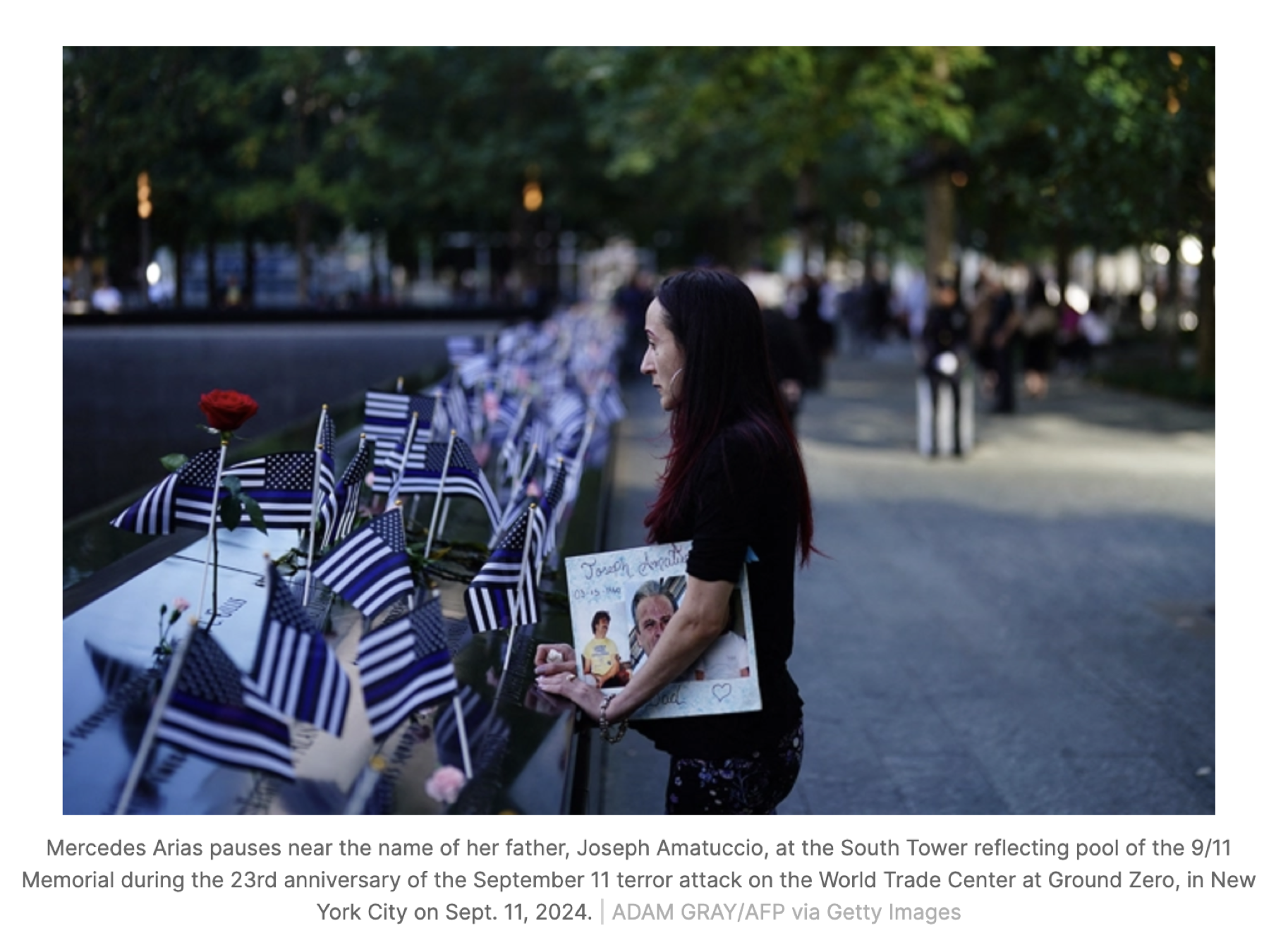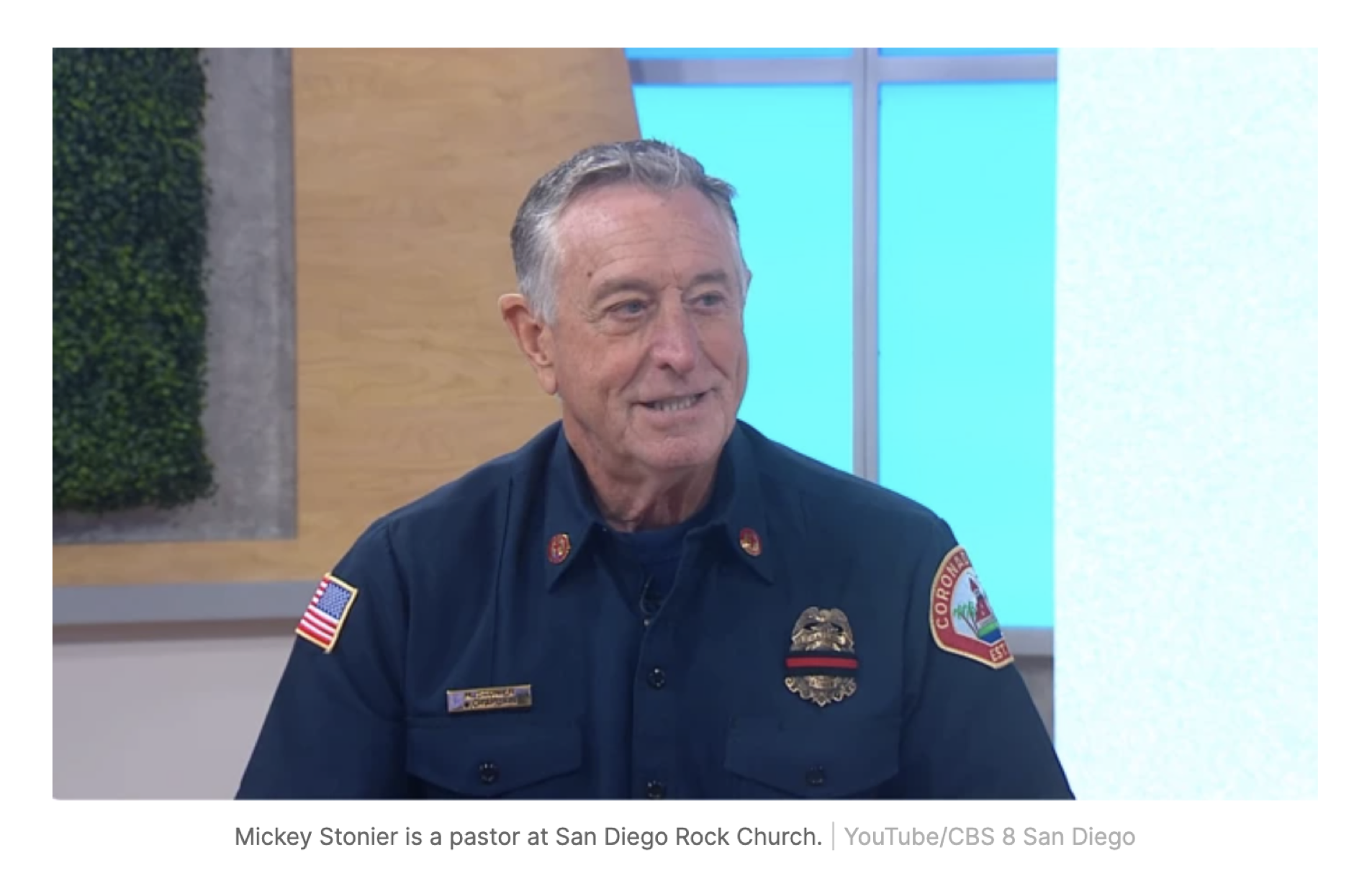23 years after 9/11, pastor who served at Ground Zero explains why it’s important to remember

For the last 40 years, Stonier has been helping to care for victims of trauma and he'll never forget his time serving at Ground Zero as a member of a disaster response team in the aftermath of the Sept. 11 terrorist attacks.
One memory that’s powerfully etched in his mind is the reaction of first responders each time they found the remains of one of their own in the rubble.
“When a [deceased] first responder was found in the rubble, the whole site stopped. The New York Fire Department personnel, no matter who was on scene, whatever task force was there, they would stand down and the FDNY, the police would go in and care for the body of their fellow co-worker,” Stonier recalled in an interview with The Christian Post.
“They were put [the remains] into a body bag, put onto a gurney. The whole site would stop. It would be silent. And then they would lift that individual by crane off to where we were as chaplains.”

Stonier would then lead the workers into a moment of silence, then prayer for the family members of the dead. The body would then be loaded onto an emergency vehicle and a somber procession would follow.
“The individual was loaded onto an emergency vehicle, and with the lights on, they would carry the person off. Everyone saluted till they were off site,” Stonier said.
Once the body was gone, they would get right back to work looking for more victims.
“[It was] so very emotional, but again, just such a privilege to be there to support and to pray for and listen to the stories and just have a listening ear for the many first responders that put their lives continually at harm to work the site,” Stonier explained.
Remembering what happened on 9/11 and the death and trauma that followed is something that is “not possible to forget” for those who were alive during the attack explains Stonier, and it’s important to pass on the memories to future generations so they will appreciate the people who work to keep America safe.
“We need to pass on to future generations as a country. And part of that supporting [is supporting] our first responders, supporting our military, our freedoms. … We will always remember 9/11, for those that lived through it,” Stonier said.
“It's the future generations that are only hearing the stories. So we need to remind generations of our history, because, as we've seen of late, future generations can tend to rewrite history, which isn't healthy,” he said. “Marxism loves to try to erase a national history, to rewrite a new history, to tear down the foundation of countries.”
Hours after their much highlighted debate on Tuesday night, Vice President Kamala Harris, former President Donald Trump shook hands at Ground Zero in New York City Wednesday as they commemorated the 23rd anniversary of the Sept. 11 attacks.
Many other events will also commemorate the attacks on Wednesday and Stonier believes that a good way to remember the attacks is to participate, especially with children.
“Going to those events, to share those events that commemorate 9/11 with younger people [are good ways to remember,” Stonier said.
Praying for first responders on 9/11 is also a good response.
“I think praying for our first responders, saying thanks to police and fire, especially on holidays, when families have days off, they're working,” Stonier noted.
“They put their lives in danger all the time for the care of others. So we need to be grateful for those that help protect our freedoms and respond to our needs in times of crisis, when someone is in a major car accident and there's injuries, that's a 911 event for that family. They're going to remember it forever. And how grateful to have responders that are kind trained and there to provide the support.”
Stonier serves as chaplain for Coronado, Santee and San Diego Fire-Rescue Departments. He is also the chaplain for the San Diego Medical Examiner’s Office, San Diego Harbor Police Department, Office of Emergency Services and is also a member of the National Critical Response Team.
For the last 20 years, Stonier has been training pastors and members of San Diego Rock Church and other people of faith how to be a resource to their communities in times of crisis. And he believes churches can help their communities deal with trauma better by getting involved.
He believes that since 9/11 when he witnessed America come together in a great show of unity, the country has devolved into various tribes of “us versus them.”
“So 23 years later, we've gone as far the other direction as possible,” Stonier lamented. “We had a chance in 9/11 to really pull together and bring healing and unity, those things, but it started to get the seeds of, I think, things quickly returned to normal, and that kind of went the other direction.”
Stonier also raised concerns about the growing rise in fragmented relationships which he believes needs to be addressed to heal some of the divisions.
“In the fire service, we have the four Fs. Manage your faith, family, friends, and then we'll have a healthy Fire Department. And so, it really goes down to the basics of what we believe. All the resilience research really focuses on the importance of friends and family as primary elements to bounce back after trauma,” he explained. “Having healthy relationships around us, we call it SOS, significant other support, and that seems to be fragmented today.
“More and more, everything is virtual. I think, obviously, COVID even enhanced that. So I think the thing we need is more face to face relationships, that support from friends and family.”
Churches, says Stonier, should get more involved in their communities in ways that help heal the divisions and bring people together.
“Lot of times, churches are against culture, so their focus is getting people to church. We want to raise up people to take care of the kids. We need ushers, things like that. At Rock Church, our mission and vision, we actually see the church being mobilized,” Stonier said.
“We're very active in equipping, training people in the church to get out into the community, to serve their community. We do a lot out in the community, but we also train church members to become lay chaplains out in the community, whether in their neighborhood, to be a chaplain for their neighborhood, a chaplain at their workplace, or a chaplain with an agency that needs crisis intervention volunteers,” he explained.
“Our pastor played in the NFL, and he always reminds the church … [that] people don't go to the football game to watch the huddle. They want to go see the game played out. And so, Sunday is a time where the church huddles and get our marching orders to go out in the community and to play the game, to engage the opponent,” Stonier said.
“I think one of the greatest things churches could do is develop an equipping strategy to train congregation members about how to love their neighbor actively,” he added. “What you do to love people at work, and what you can do to serve out in the community. And so that's a major thrust of what we do and why we do what we do.”
By Leonardo Blair, Senior Reporter originally published at The Christian Post Wednesday, September 11, 2024